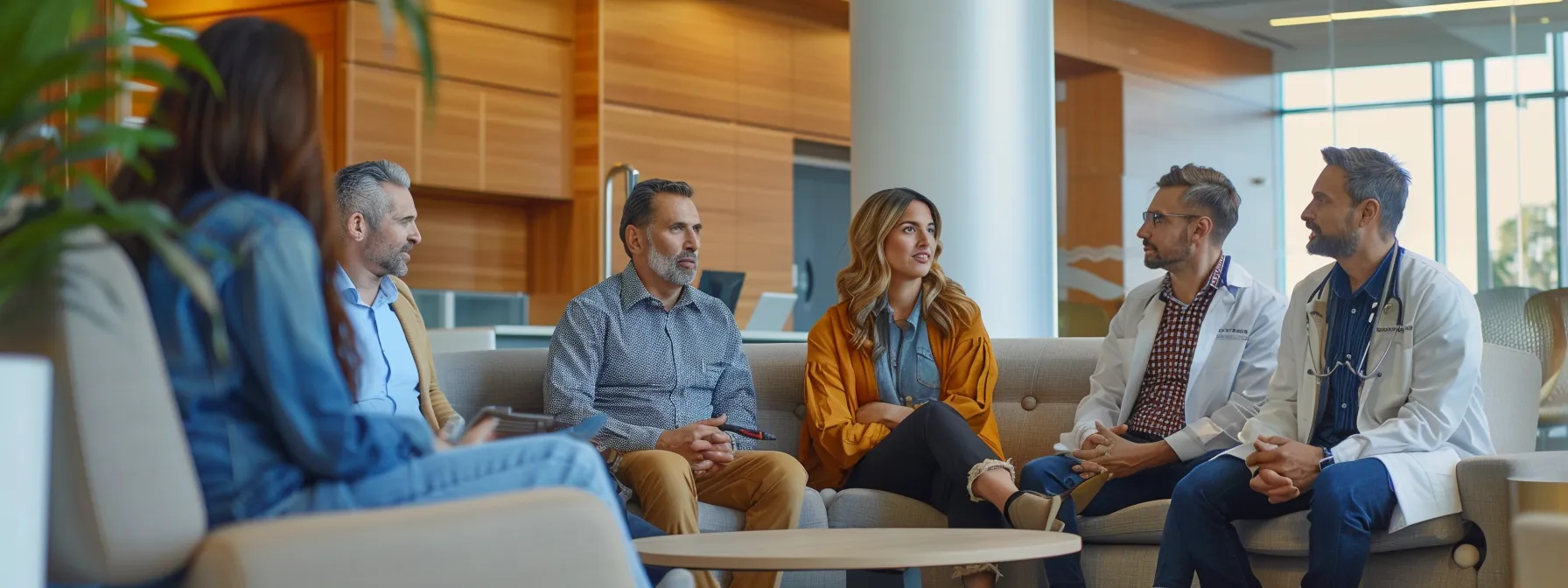Navigating SEO: A Digital Marketing Agency's Guide
Digital marketing agencies constantly strive to enhance their clients’ online visibility through effective SEO strategies. With the ever-evolving landscape of search engine algorithms, staying ahead of the curve is crucial for success. SEO automation services, like those offered by omnitools.uk, can streamline and optimize your agency’s SEO processes. In this article, we’ll explore key aspects of navigating SEO for digital marketing agencies, from debunking common myths to implementing technical fixes that boost site performance. Keep reading to discover actionable insights that will elevate your agency’s SEO game and drive tangible results for your clients.
Key Takeaways
- Effective SEO requires distinguishing myths from facts through research and expert consultation
- Keyword research is crucial for creating content that aligns with user search intent
- Technical SEO fixes, including on-page optimization and site speed improvements, enhance search engine performance
- Building high-quality backlinks from reputable sources strengthens website authority and improves search rankings
- Regular monitoring and maintenance of your backlink profile is essential for long-term SEO success
Decoding SEO Myths for Digital Marketing Success


SEO myths can hinder your digital marketing efforts and waste valuable resources. As a digital marketing agency, you need to separate fact from fiction to develop effective strategies for your clients. By identifying common misconceptions about SEO and learning how to differentiate between seo automation services and facts, you’ll make informed decisions that drive real results. Let’s explore these crucial aspects of SEO omnitools.uk to ensure your agency stays ahead in the competitive digital landscape.
Identifying Common Misconceptions About SEO
You might have encountered various SEO myths that can lead your digital marketing agency astray. One common misconception is that keyword density is the primary factor in ranking. In reality, search engines prioritize content quality and relevance over keyword stuffing.
Another myth you should be aware of is that meta descriptions directly impact search rankings. While meta descriptions are essential for click-through rates, they don’t directly influence your position in search results. Focus on crafting compelling meta descriptions that encourage users to click on your links.
You may have heard that social media signals are a significant ranking factor. However, this is not entirely accurate. While social media can indirectly impact SEO through increased visibility and traffic, it’s not a direct ranking factor. Consider the following table for a clear overview of common SEO myths and facts:
| SEO Myth | SEO Fact |
|---|---|
| Keyword density is crucial | Content quality and relevance matter most |
| Meta descriptions affect rankings | Meta descriptions influence click-through rates |
| Social media signals directly impact rankings | Social media indirectly affects SEO through visibility and traffic |
How to Differentiate Between SEO Myths and Facts
You can distinguish SEO myths from facts by staying informed through reputable sources. Follow industry-leading blogs, attend conferences, and participate in webinars to keep up with the latest SEO trends and best practices. This continuous learning approach will help you identify and debunk myths as they emerge.
Rely on data-driven insights to validate or disprove SEO claims. Conduct your own experiments and analyze the results using tools like Google Analytics and Search Console. This hands-on approach will give you firsthand experience and concrete evidence to support or refute various SEO theories.
Consult with experienced SEO professionals and seek their opinions on controversial topics. Engage in discussions within industry forums and communities to gain diverse perspectives. By combining expert insights with your own research and experimentation, you’ll develop a more accurate understanding of SEO facts and myths.
Busting SEO myths sets the stage for real digital marketing success. Now, let’s dive into the art of creating content that climbs Google’s rankings.
Crafting Content That Ranks Higher on Google


You must master the art of creating content that ranks higher on Google to stay competitive in the digital marketing landscape. By understanding the intricacies of keyword research and implementing SEO-friendly writing techniques, you’ll craft content that not only appeals to search engines but also engages your target audience. Let’s explore how you can leverage keyword research to inform your content creation process and discover practical tips for writing compelling, SEO-optimized content that resonates with readers.
The Role of Keyword Research in Content Creation
Keyword research forms the foundation of your content strategy, guiding you to create content that aligns with user search intent. By identifying relevant keywords and phrases, you gain insight into what your target audience is searching for and how they phrase their queries.
Use keyword research tools to uncover high-volume, low-competition keywords that present opportunities for your content to rank well. Analyze search trends and related queries to develop a comprehensive content plan that addresses various aspects of your chosen topics.
Incorporate long-tail keywords into your content strategy to target specific user intents and capture more qualified traffic. Long-tail keywords often have lower search volumes but higher conversion rates, making them valuable for your digital marketing efforts. Consider the following steps to effectively leverage keyword research in your content creation process:
- Identify primary and secondary keywords
- Analyze search intent behind each keyword
- Group related keywords into topic clusters
- Prioritize keywords based on relevance and difficulty
- Develop content outlines around selected keywords
Tips for Writing SEO-Friendly Content That Engages Readers
Craft compelling headlines that incorporate your target keywords while piquing readers’ interest. Use power words and emotional triggers to create a sense of urgency or curiosity, encouraging users to click through to your content.
Structure your content with clear headings and subheadings, using H2 and H3 tags to organize information logically. This improves readability for both users and search engines, making it easier for Google to understand and index your content.
Optimize your content’s visual appeal by incorporating relevant images, infographics, and videos. Use descriptive alt text for images and include captions that reinforce your key points, enhancing both user engagement and SEO value.
Elevate your content strategy to new heights with these SEO-optimized techniques. Now, let’s dive into the technical side of SEO to supercharge your website’s performance.
Technical SEO Fixes That Boost Your Site's Performance


You can significantly enhance your site’s search engine performance through technical SEO fixes. By implementing essential on-page optimization techniques, you’ll improve your rankings and visibility in search results. Additionally, focusing on website speed optimization will not only boost your search engine rankings but also provide a better user experience for your visitors. These technical improvements form the backbone of a successful SEO strategy, helping you outperform competitors and drive more organic traffic to your site.
Essential on-Page Optimization Techniques for Better Rankings
You need to optimize your title tags and meta descriptions to improve your site’s click-through rates and rankings. Craft unique, keyword-rich titles that accurately describe your content and entice users to click. Keep your meta descriptions concise and compelling, highlighting the main benefits of your page.
You should structure your content using header tags (H1, H2, H3) to create a clear hierarchy and improve readability. Use your target keywords naturally within these headers, but avoid keyword stuffing. Implement internal linking to distribute link equity and help search engines understand the relationships between your pages.
You must optimize your images by compressing them and using descriptive file names and alt text. This improves your site’s loading speed and helps search engines understand the context of your visual content. Additionally, implement schema markup to provide search engines with more detailed information about your content, potentially enhancing your search result appearance.
Speeding Up Your Website to Improve User Experience and Ranking
You must prioritize website speed optimization to enhance user experience and boost your search engine rankings. Start by compressing images, minifying CSS and JavaScript files, and leveraging browser caching to reduce load times. Implement a content delivery network (CDN) to serve your assets from servers closer to your users’ geographical locations.
You should optimize your server response time by choosing a reliable hosting provider and configuring your server settings for optimal performance. Consider using a static site generator or implementing server-side caching to reduce the time it takes to generate and serve web pages.
You need to minimize the use of render-blocking resources and optimize your above-the-fold content to improve your site’s perceived loading speed. Defer non-critical JavaScript and CSS loading, and prioritize the content that users see first when they land on your page. Regularly monitor your site’s performance using tools like Google PageSpeed Insights and make iterative improvements based on the recommendations provided.
SEO success extends beyond on-site optimization. Let’s explore how to amplify your site’s authority through strategic link building.
Building Quality Backlinks for Enhanced Authority


You must prioritize building high-quality backlinks to enhance your website’s authority and improve search rankings. Securing links from reputable sites requires strategic outreach and valuable content creation. By implementing effective link-building strategies and consistently monitoring your backlink profile, you’ll strengthen your site’s credibility in the eyes of search engines. Let’s explore proven techniques for acquiring authoritative links and maintaining a healthy backlink profile over time, ensuring your digital marketing efforts yield long-term SEO success.
Strategies to Gain High-Quality Links From Reputed Sites
Create valuable, data-driven content that naturally attracts links from authoritative sources. Develop original research, case studies, or industry reports that provide unique insights and share them with relevant influencers and publications in your niche.
Leverage guest posting opportunities on respected websites within your industry. Pitch thought-provoking article ideas that align with the host site’s audience and offer genuine value. Include relevant, contextual links to your own content within the guest post body or author bio.
Build relationships with journalists and bloggers through platforms like Help a Reporter Out (HARO). Respond promptly to media queries with expert insights, positioning yourself as a reliable source for industry-related information. This approach can lead to organic mentions and backlinks from high-authority news sites and publications.
Monitoring and Maintaining Your Backlink Profile Over Time
You should regularly audit your backlink profile to identify and address potentially harmful links. Use tools like Google Search Console, Ahrefs, or Moz to monitor new backlinks and assess their quality. Disavow toxic or spammy links that could negatively impact your site’s authority.
You need to track the growth and decay of your backlink profile over time. Analyze the rate at which you’re gaining new links and losing existing ones. This information helps you identify successful link-building strategies and areas that require improvement.
You must diversify your backlink sources to maintain a natural link profile. Aim for a mix of dofollow and nofollow links from various domains and content types. Continuously seek new opportunities to earn high-quality backlinks through content promotion and relationship-building efforts.
Frequently Asked Questions
How can a digital marketing agency improve a website's search engine rankings?
A digital marketing agency can improve a website’s search engine rankings by conducting thorough keyword research and optimizing on-page elements. This includes crafting compelling meta titles and descriptions, creating high-quality content, and ensuring proper header tag usage. Technical optimizations like improving site speed and mobile responsiveness are also crucial. Off-page strategies play a significant role in boosting rankings. Agencies can develop a robust link-building strategy, focusing on acquiring high-quality backlinks from reputable sources. They can also leverage social media platforms to increase brand visibility and engage with the target audience, indirectly impacting search rankings.
What are the most common SEO myths that agencies should be aware of?
SEO agencies should be aware of several persistent myths that can hinder their efforts. The belief that more keywords equal better rankings is outdated, as search engines now prioritize quality content and user experience. Another common misconception is that meta descriptions directly impact search rankings, when they primarily influence click-through rates. The idea that SEO is a one-time effort is also false. Search algorithms constantly evolve, requiring ongoing optimization. Additionally, the myth that social media signals directly affect rankings can lead to misplaced efforts. While social media can indirectly impact SEO through increased visibility and engagement, it’s not a direct ranking factor.
How often should a digital marketing agency update a client's website content?
Digital marketing agencies should update a client’s website content regularly, typically every 1-3 months. This frequency ensures the site remains fresh, relevant, and aligned with current market trends. Regular updates also help maintain search engine rankings and keep visitors engaged. The exact update schedule depends on factors like the client’s industry, competition, and marketing goals. Some websites may require weekly updates, while others can maintain effectiveness with quarterly refreshes. Agencies should work closely with clients to determine the optimal content update frequency.
What technical SEO fixes can significantly improve a website's performance?
Technical SEO fixes that can significantly improve website performance include optimizing page load speed, implementing proper URL structure, and ensuring mobile responsiveness. Creating an XML sitemap, fixing broken links, and using structured data markup also contribute to better search engine visibility and user experience. Improving website security with HTTPS, optimizing images for faster loading, and implementing effective internal linking strategies are crucial. Additionally, addressing duplicate content issues, optimizing meta tags, and leveraging browser caching can lead to substantial improvements in overall website performance and search engine rankings.
How can digital marketing agencies build high-quality backlinks for their clients?
Digital marketing agencies can build high-quality backlinks for clients by creating valuable, shareable content that naturally attracts links. This includes producing industry-specific research, infographics, or in-depth guides. Agencies should also focus on guest posting opportunities on reputable websites and leveraging relationships with influencers and industry partners. Another effective strategy is to conduct competitor backlink analysis to identify potential link opportunities. Agencies can then reach out to these websites, offering valuable content or resources in exchange for a backlink. Additionally, participating in industry events, webinars, and podcasts can generate quality backlinks while increasing brand visibility.



